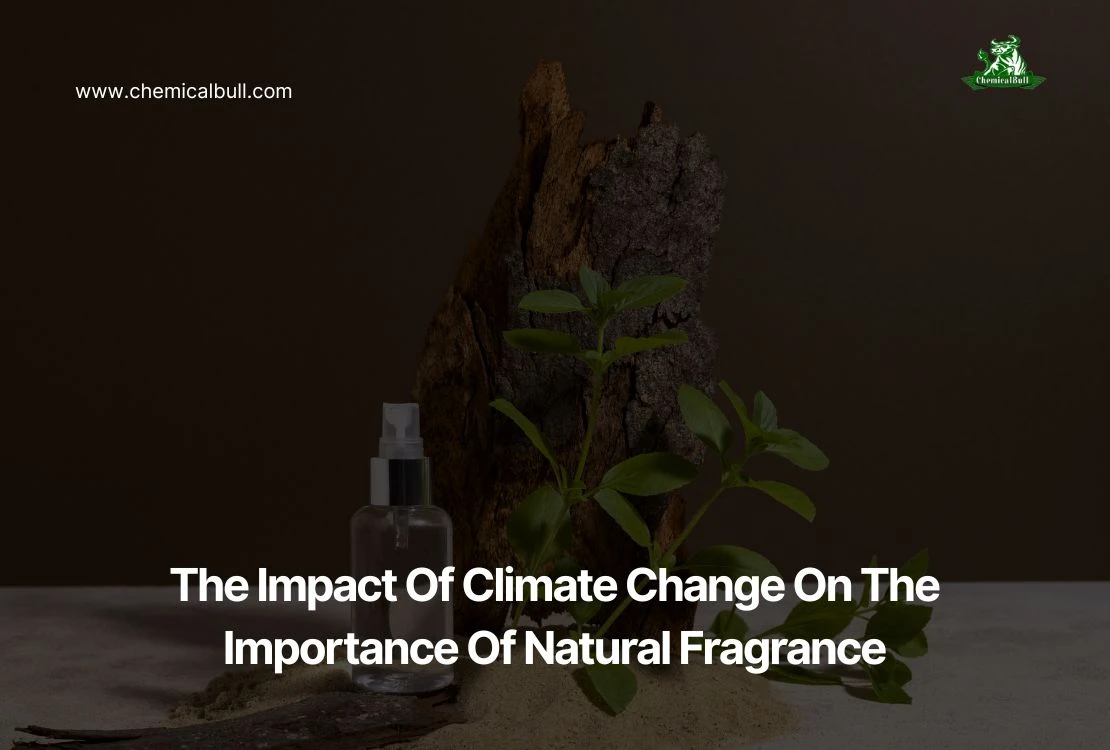The Impact Of Climate Change On The Importance Of Natural Fragrance
Nature has been the source of fragrances for centuries, delicate roses, exotic spices, sweet resins, and woody barks. As climate change continues to reshape our planet, perfume faces an uncertain future. Rising temperatures, changing weather patterns, and decreasing biodiversity threaten the raw materials that give fine perfumes their soul.
This article explores how climate change impacts fragrances and their natural ingredients. We also discuss what it means for future perfumery from a commercial and creative standpoint.
Natural Ingredients in Perfumery
For centuries, natural ingredients have played a significant role in the creation of perfumes. The natural ingredients used in perfume-making have been around for centuries.
Familiar natural fragrance sources include:
- Flowers: Jasmine, rose, tuberose, ylang-ylang
- Woods: Sandalwood, cedar, oud
- Resins & Balsams: Frankincense, myrrh, benzoin
- Citrus Fruits: Bergamot, lemon, orange
- Spices & Herbs: Clove, cinnamon, basil, lavender
They are sensitive to changes in the climate.
Climate Change and Plant Growth and Scent Qualities
Climate change impacts fragrance ingredients in several ways:
- Temperature Variability: Some aromatic plants thrive in specific temperatures. As global temperatures increase, the optimal conditions for growing these plants have changed or disappeared entirely.
- Water Stress: Droughts affect plants, and unpredictable rain can reduce oil production. Lavender needs a dry but not too dry climate. A prolonged drought may damage plants and decrease essential oil production.
- Pollinator Decline: Pollinators, such as bees or butterflies, are essential to the reproduction of many fragrance plants. However, changing ecosystems and the use of pesticides reduce pollinator numbers.
- The soil degradation: Climate change has accelerated floods, erosion, and intensive agriculture, which alter soil chemistry and reduce the quality of raw natural materials.
- The Scent Profile has Changed: The aromatic profile can be altered, which has a subtle yet significant impact. The same rose variety grown in different climates can yield essential oils with a mildly altered scent.
Examples in Real Life of Fragrance Ingredients Impacted
Below are some concrete examples of how the climate is affecting natural fragrances:
- Rose (Rosa damascena) - Bulgaria & Turkey: In recent years, the world-famous Damask Rose used for luxury perfumery has seen its yields fluctuate due to unpredictability in rainfall and temperatures. Harvest window shrinking affects both fragrance and oil yield.
- Sandalwood from India and Australia: A sandalwood tree takes decades to mature. Due to overharvesting, the Indian sandalwood tree (Santalum Album) is becoming increasingly scarce and costly.
- India and Egypt - Jasmine: The early flowering cycle and heat waves have led to jasmine blooms opening and fading too fast, affecting the flowers' volume and their scent. Now, workers must pick the flowers earlier.
- Vanilla - Madagascar: The extreme instabilities caused by cyclones, global warming, and deforestation have led to a drastic drop in the production of vanilla. What is the result? The result?
- Frankincense- Horn of Africa: Boswellia, the tree that produces frankincense, is under pressure due to unreliable weather patterns and an inefficient harvest. The trees and the communities that rely on its products are at risk.
The economic and cultural ramifications
For many areas, natural fragrance crops are not just ingredients. They are vital to local economies and their cultural heritage. Climate disruptions result in not only a loss of raw materials for perfumers but also a loss of livelihoods for many farmers and harvesters.
This is the result of:
- Increased Ingredient Costs
- Unpredictable Supply Chains
- Perfume houses under pressure to reformulate old scents
- Loss of Traditional Farming Knowledge
Strategies for Adaptation in the Fragrance Industry
The perfume and agricultural sectors have responded by implementing new adaptation strategies.
- Shifting Cultivation Zones: The producers are shifting their cultivation to the mountains or regions with more stable weather conditions.
- Controlled Greenhouse Farming: Vertical and indoor farming helps control the temperature, light, and water to maximize growth and yield.
- Agroforestry & Biodiversity: By reintroducing native species and diversifying crop varieties to soils and ecosystems.
- Fair Trade & Sustainable Certifications: As brands invest more in sustainable sourcing, they also ensure environmental sustainability.
Synthetic and Sustainable Alternatives
Synthetic aroma chemicals and biotechnology-based alternatives are becoming more popular as natural ingredients become harder to find and costlier.
- Hedione (a synthetic) and ambroxan (iso E super), for example, mimic the natural smells of scented products without causing environmental harm.
- Biotech companies now create lab-grown versions of natural molecules using fermentation and yeast engineering--providing sustainable, consistent alternatives.
While allowing for creative expression, these solutions allow perfumers to reduce their reliance on climate-vulnerable crops.
Conclusion
The climate change threat is not far off. It's already changing the face of fragrance. The delicate ecologies that support natural aromatic ingredients are under pressure, and this threatens to change perfumery. The industry has to face the challenges of changing scent profiles and disappearing crops with innovative solutions.
The perfume industry must adapt to changing times, whether through more sustainable farming methods, alternative synthetics, or eco-friendly business models. The most attractive fragrances delight not only the senses but also the environment from which they are sourced.

Pharmaceutical Grade Vs Industrial Grade Chemicals: Understanding The Essential Differences
14-Feb-2026

Sustainable Api Production: Green Chemistry, Continuous Flow Manufacturing And Strategic Sourcing
12-Feb-2026





